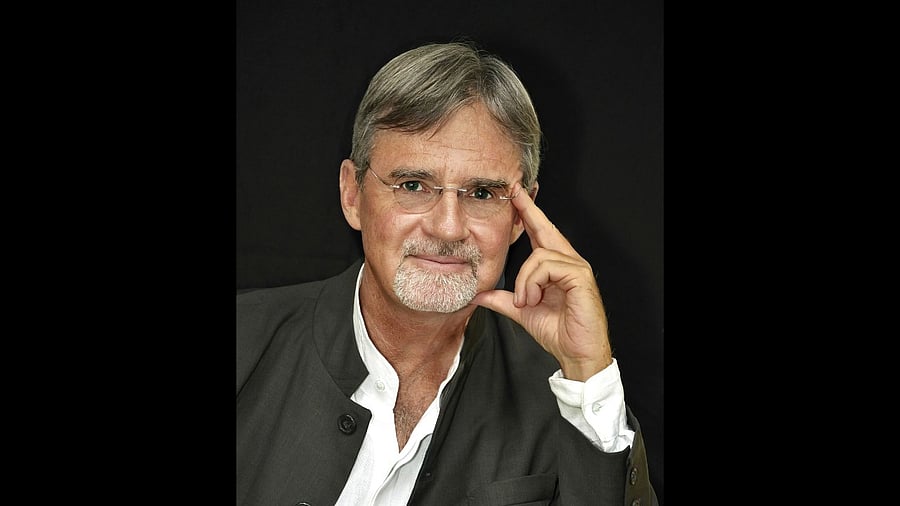
Kai Bird
Credit: Wikimedia Commons
Biographer Kai Bird called ‘the father of the atomic bomb’, J Robert Oppenheimer, ‘a complicated person’. The theoretical physicist “was very passive about defending himself,” Bird said. The American author was in Bengaluru for a talk on his Pulitzer-winning biography ‘American Prometheus: The Triumph and Tragedy of J. Robert Oppenheimer’ at Bangalore International Centre on Wednesday.
The book was the inspiration for 2023 Christopher Nolan film ‘Oppenheimer’, which has 13 nominations for the 2024 Academy Awards.
Before his talk in Bengaluru, Bird’s 2005 book was discussed at multiple sessions at the recently concluded Jaipur Literature Festival. On the sidelines of the Festival, Bird spoke to Metrolife about the research that went into the book, the film adaptation and the evolution of the process of writing. Excerpts:
When you were doing your research for the Oppenheimer biography, what surprised you most about your findings?
He was very complicated. My co-author Marty Sherwin and I — we could not figure out why he subjected himself to this (being put on trial and investigated) when he didn’t have to. He was so inept at defending himself. He was very passive. By contrast his wife, Kitty, was very aggressive about defending her husband and answering the questions from the prosecutor. I still don’t understand it.
Can you tell us a bit about how Christopher Nolan approached you for the film?
Nolan read the book in March 2021. The biography came out in 2005.
He fell in love with it and decided to write a script. And he did it in four to five months. And only then did he contact me and Marty. That was in September 2021.
We had a meeting, which was very friendly and interesting. We discussed what was in the screenplay but he was still working on it. In February 2022, we had another meeting and he allowed me to read the whole screenplay and comment on it. I gave him several suggestions which he accepted. Largely, it was his screenplay. I did very little. But the film is heavily based on the book. There are long pieces of dialogue that come straight out of the biography. I love how it turned out. It’s an amazing film. But most surprising to me was how historically accurate it is.
There are some imagined conversations, obviously, between Oppenheimer and Einstein but they’re plausible.
How has the process of writing changed since the early days of your career?
When I started writing books in the 1980s, I would have to go to the archive and take photocopies of archival documents. It cost 25 cents a page. You’d have to travel to the archive. It was quite expensive, you know? Nowadays, I take pictures with my phone and file them digitally with a software program. It’s much easier.
I used to tape record interviews. And then I would have to go home and sit and transcribe with headphones. It was very laborious. Or I would have to hire someone and that was expensive. Now, I can send my interviews to a transcription service and for relatively few dollars, it comes back fully transcribed.
Whom are you writing about next?
I’m writing a biography of a man named Roy Cohn. He’s not well known, but he was the chief council lawyer to senator Joseph McCarthy in the 1950s. And then he became the lawyer to all five mafia families in New York City. In 1973, he met a young real estate developer at a private dinner club. His name was Donald Trump. He became Trump’s personal lawyer and he taught him how to never pay his taxes, how to lie, and how to always counter sue. He moulded Trump into a public figure.